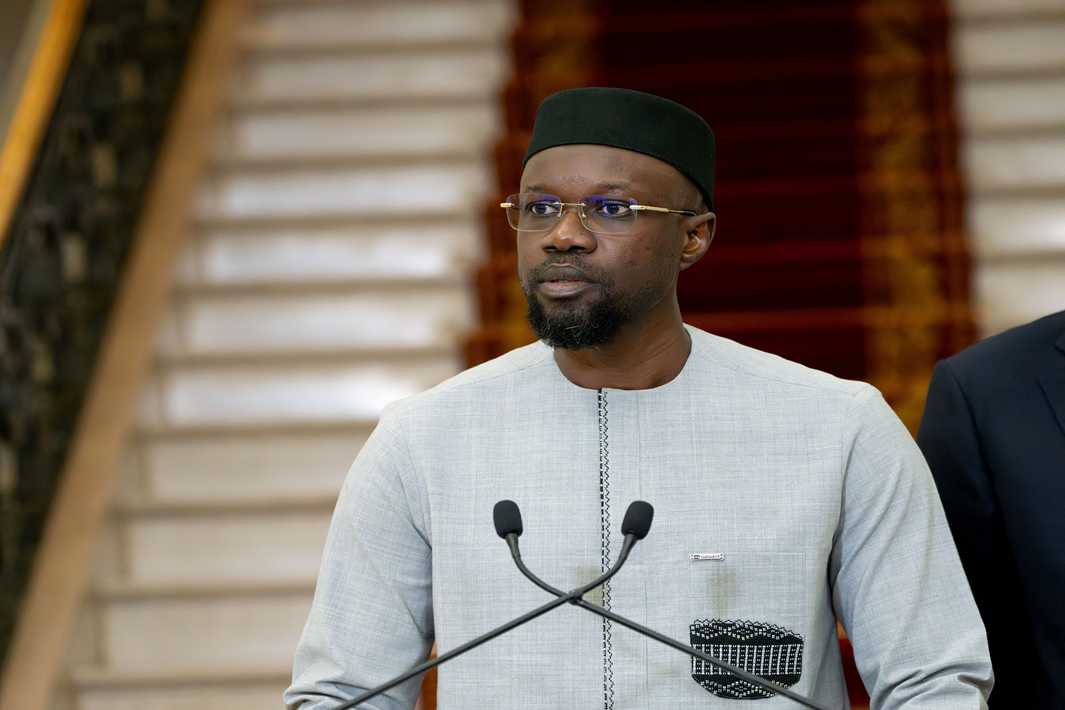By Wesley Omondi
DAKAR, SEPTEMBER 27, 2024 (CISA)—The Catholic Church in Senegal has expressed outrage over remarks by Prime Minister Ousmane Sonko, who stated that his government would no longer allow Muslim students wearing headscarves to be barred from schools. Sonko’s comments, made last week, sparked controversy in a nation known for its religious tolerance, though predominantly Muslim.
“Some things can no longer be tolerated in this country. France constantly talks to us about their lifestyle and their model, but that is theirs,” said Sonko who was appointed Prime Minister after President Bassirou Diomaye Faye’s electoral victory in March.
In a controversial move, Sonko called on schools to refrain from banning the headscarf during an awards ceremony for top-performing students. While Senegal is 90 percent Muslim, the headscarf is not as commonly worn compared to other Muslim-majority countries.
“In Senegal, we will no longer allow some schools to ban the headscarf,” Sonko stated.
These remarks did not sit well with the Catholic Church, which felt targeted. Senegal’s National Council of the Laity (CNL), representing Catholic organizations, swiftly responded. The CNL said the prime minister’s statements unfairly condemned Catholic schools, which were “judged mercilessly,” despite having no specific rule banning headscarves.
“The Council voices its outrage at declarations it deems to be clumsy,” said a statement issued by the CNL, emphasizing that private Catholic school rules do not explicitly prohibit the hijab.
Catholic schools in Dakar, particularly the esteemed Sainte Jeanne-d’Arc Institution, have been at the centre of headscarf-related controversies. In 2019, the school expelled 22 Muslim students for refusing to comply with a rule requiring uncovered heads. The students were eventually allowed back following negotiations between the school and the education ministry.
“A deal was reached allowing students to wear a school-issued scarf of suitable dimensions,” noted an official at the National Office of Catholic Education. The office recently recommended updating school rules to avoid future disputes.
Education Minister Moustapha Mamba Guirassy, reacting to the prime minister’s statements, argued that Sonko’s comments were simply a reminder of Senegal’s constitutional values, which promote secularism.
“The prime minister only gave a reminder about the regulatory framework,” he stated. He reiterated that the Constitution advocates secularism and does not differentiate between individuals based on religious symbols, such as the headscarf or the cross.
Despite this, tensions between the government and the Church remain high. At a September 19 meeting, Sonko urged the swift enactment of a decree requiring all schools to align with national rules regarding school uniforms, calling for an end to what he described as “discrimination related to students’ attire.”
“They are on Senegalese soil and will follow what Senegal has decided,” Sonko said, targeting foreign-run Catholic schools.
Philippe Abraham Tine, president of the CNL, fired back, accusing the prime minister of unfairly singling out Catholic schools.
“Tine urged the prime minister to show more ‘respect and consideration’ for Catholic education,” said a statement issued by the CNL. The statement further warned against any attempts to undermine the Catholic community or disrupt Senegal’s social fabric.
The dispute over the headscarf, which had simmered down following the 2019 agreement, has now been reignited. The Catholic Church remains steadfast in its opposition to any policy it perceives as discriminatory or as an infringement on its educational institutions’ autonomy.
“The threats are ineffective,” the CNL declared, emphasizing the Church’s commitment to Senegal’s constitutional principles.
